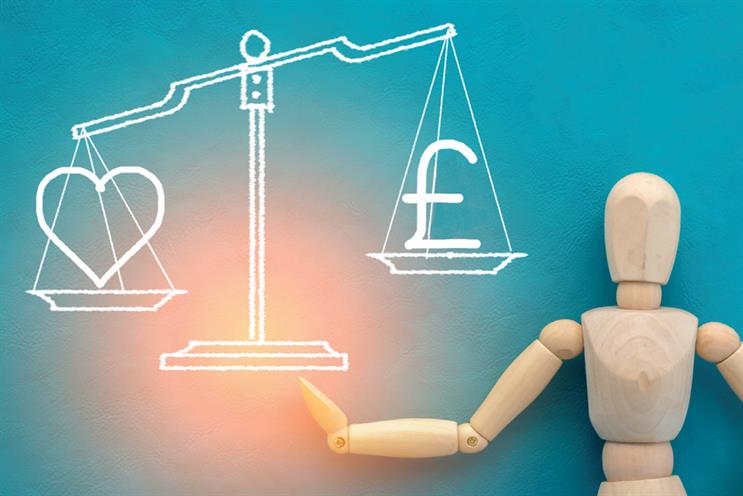Both agencies and their clients want to create powerful campaigns with societal purpose. It’s an imperative for two reasons.
Firstly, there’s demand. Nearly three quarters of millennials say sustainability affects their shopping choices. And secondly, those same millennials are working for those brands in growing numbers.
We all know we’re living in an era of "brand purpose", with companies taking a clear stance on certain societal issues that it wants to change. But do we really know if our marketing campaigns are having a lasting or positive impact on society? The honest answer is no. At the moment, it’s very hard to tell.
has shown that 60% of so-called "purposeful" marketing campaigns don’t go on to measure their societal impact as part of their campaign KPIs.
From the outset, brands with purpose need to make sure that societal KPIs are at the heart of the briefing process with agencies.
Currently as an industry we aren’t striving to fully understand the effectiveness of campaigns on society or measuring the impact, and this needs to change in 2018.
It’s clear that as an industry we want to create campaigns that make the world a better place – be that by improving the environment, promoting diversity in the workplace or supporting charities – and there are many corporate leaders who have the right motives in business. However, they currently aren’t being served well by their marketing campaigns or, more specifically, by how they’re measured.
Without the appropriate measurement we risk turning what is a bold and genuine desire by leaders to make a positive contribution to society into superficial lip service, which will only serve to undermine our reputations and erode trust in the industry.
From the outset, brands with purpose need to make sure that societal KPIs are at the heart of the briefing process with agencies.

Measuring the impact of fundraising, for example, is simple. 北京赛车pk10s in, pounds and pence raised out. You can put a figure on your fundraising ROI. Environmental causes can be a little more contentious, but still in the world of proof-by-numbers.
If you move onto a cause like diversity, the landscape becomes much less clear. Many businesses champion diversity, both within their own companies as well as to help raise awareness of causes and shine a light on specific issues.
Yet there are very few tangible measurements to demonstrate that their efforts are bearing fruit. Measuring this sort of societal impact can be messy and hard to pin down. There is no industry standard metric. Not all causes are created equal. We lack a neat and tidy Net Promoter Score equivalent for "doing good".
In our whitepaper, we explore how purposeful brands have structured measurement frameworks to define impact and build on success, but also an encouragement for the creative industry as a whole to help push this agenda by demanding rigour and rewarding the right kind of excellence to ensure real societal change.
Nearly half 2017’s Grand Prix and Gold Lion winners at Cannes can be termed 'purposeful' - but they tended to see success on the basis of stunning creative, rather than the resulting societal change
Clients look to awards as one of the signposts for choosing their next agency but there is little framework in place that awards laurels on the basis of tangible results from brand purpose.
Nearly half (47%) of 2017’s Grand Prix and Gold Lions winners in the Cannes Festival of Creativity can be termed "purposeful". Yet the majority didn’t measure impact and the winners tended to see success on the basis of stunning creative, rather than the resulting societal change that occurred subsequently.
Great creative work is one mark of excellence but it’s not the only mark. There are some ads that have a huge impact but wouldn’t pass muster in Cannes.
There’s no reason show-stopping creative and impactful communications should be mutually exclusive - we’d argue they’re a vital partnership. They are rare and hard to achieve together, but we must try as an industry to marry the two concepts in all campaigns to achieve widespread appeal and affect change.
Cannes is moving in that direction with the Sustainable Development Goals Lion award, but concrete evidence of societal effectiveness has to be part of its make-up if it’s to succeed.
We know that many senior corporate leaders are committed to delivering on a genuine commitment to building a purposeful brand and 54% of marketers are advocates of sustainability, but the real question we need to ask ourselves is this: If it’s genuinely the company’s purpose, why not show what’s actually been achieved?
It’s a difficult conversation to have but it will move us towards a world where we can definitively say that we have contributed to society.
Lars Holm is global senior manager CSR at Dentsu Aegis Network


